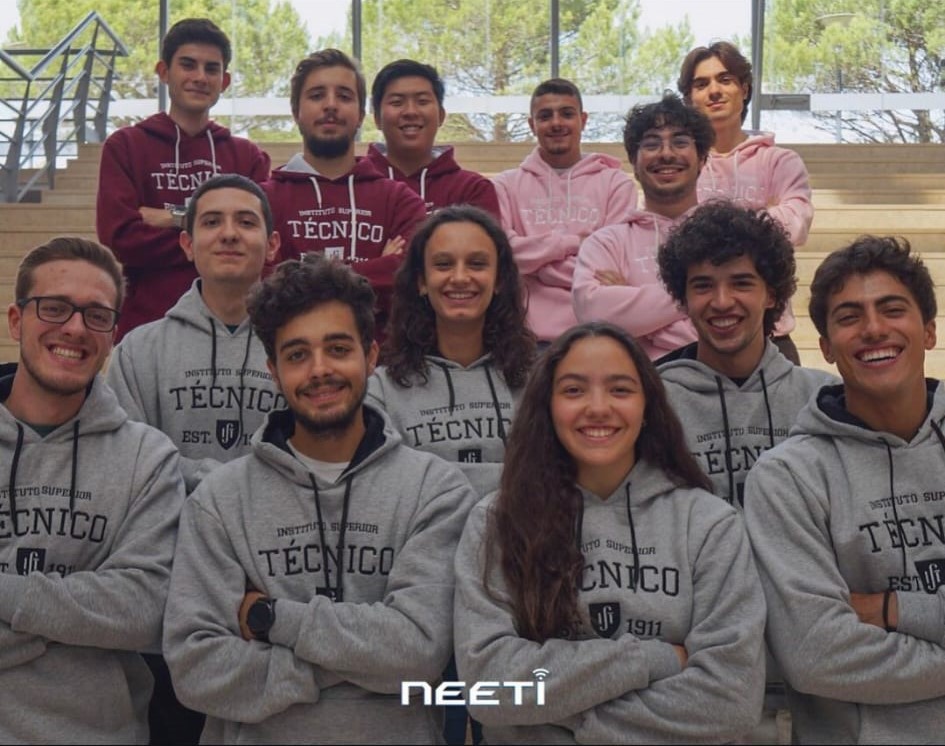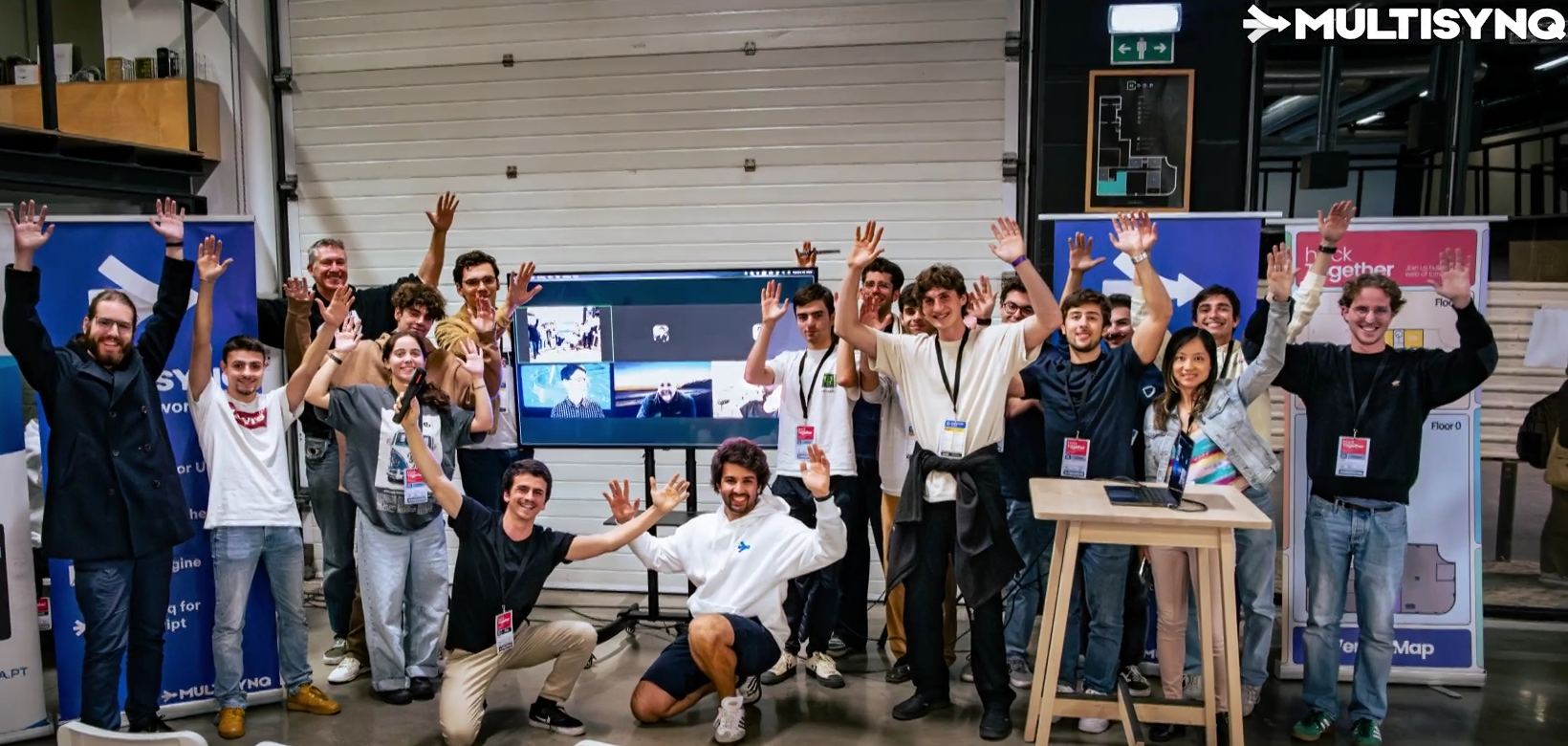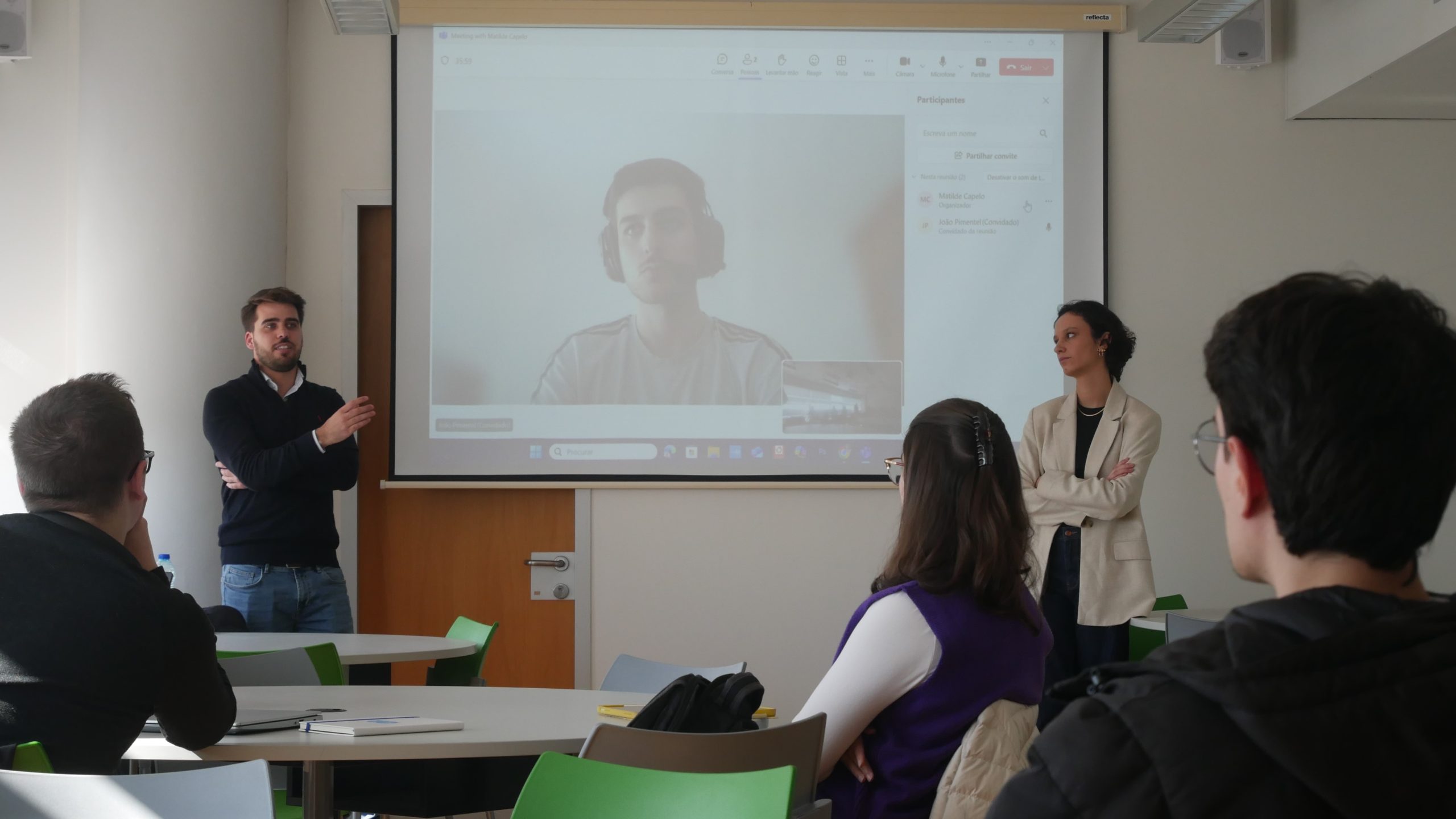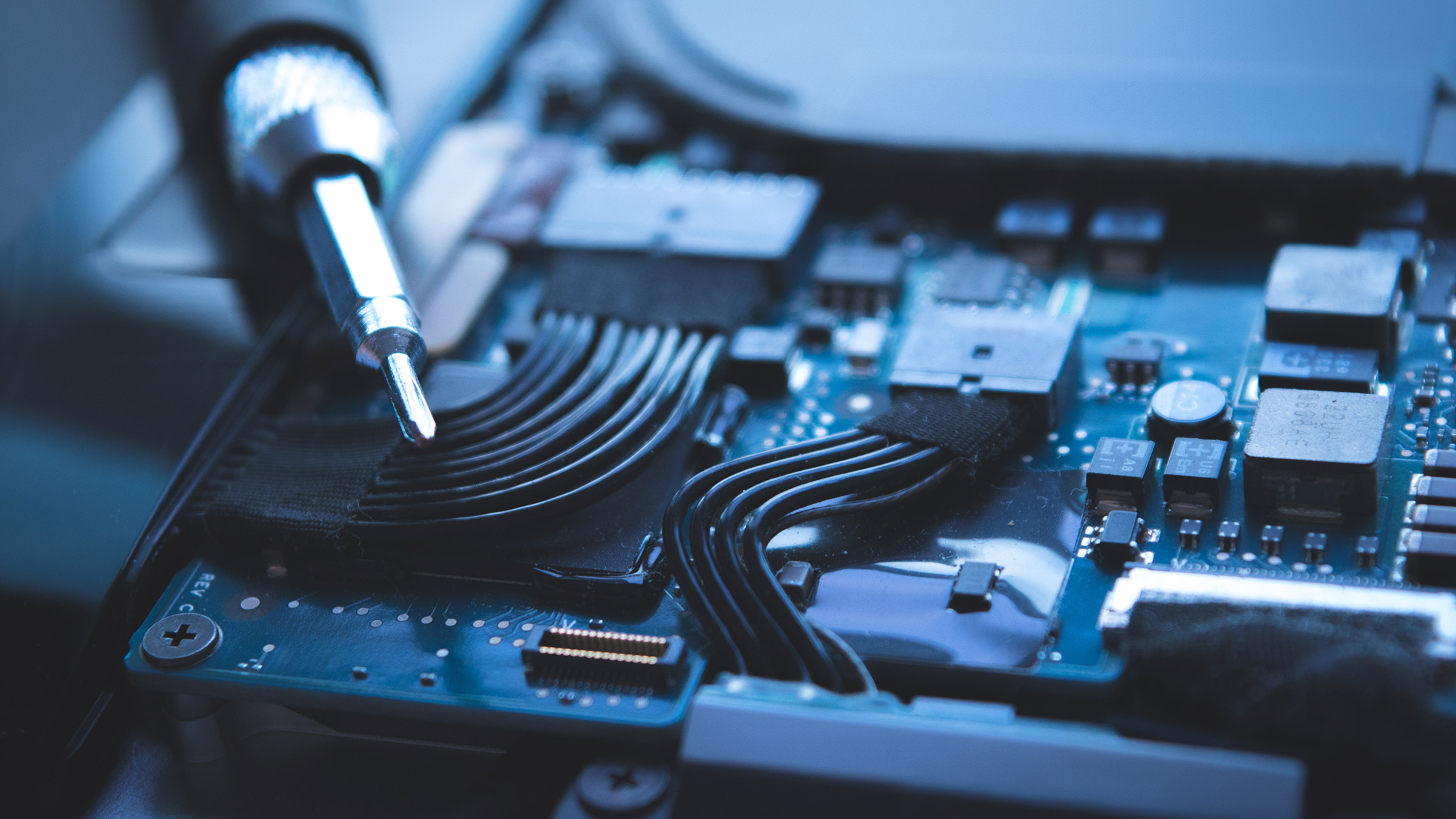NEETI: “a space where everyone can feel included”

The Student Group of Telecommunications and Informatics Engineering, known as NEETI, is composed of bachelor’s and master’s students in the same field, with the main goal of promoting activities related to the area. In an interview with DEEC, Matilde Capelo, João Maia, and Diogo Folião shared their experiences as members of the group and discussed the initiatives developed throughout the year.
Matilde Capelo, João Maia, and Diogo Folião joined NEETI not only to complement the knowledge acquired in class but also to connect with students from different academic years, viewing the group as both a space for learning and for social interaction: “I wanted to be part of a student club. Beyond the theoretical and practical aspects of the course, I was also looking for a social dimension at university,” Diogo highlights.
Sharing the same view, João Maia, a LETI student, adds that being part of the group also helps develop personal management skills by balancing academic and extracurricular life.
Currently, to foster teamwork and the exchange of knowledge between students from different years, the group has been developing several initiatives, always aiming to create “a space where everyone feels included and can freely share their ideas,” emphasizes Matilde Capelo.

[Our main goal is to] connect with students from other years and support younger ones through the various events we organize throughout the year.
Diogo Folião, LETI student
Among these activities, NEETI regularly organizes code nights and code afternoons on the Taguspark campus, where students explore topics such as programming fundamentals, operating systems, introduction to algorithms, data structures, and distributed systems, among others. These sessions allow students to work on their own projects, encouraging creativity and providing a relaxed setting to ask questions and share ideas with peers from the course.
Through these initiatives, students aim to develop core skills for working with technologies across various areas of electrical and computer engineering — such as telecommunications, computing, electronics, and control systems. “[The course and NEETI activities offer] essential tools for building hardware projects (circuits, boards, IoT devices); understanding communications (signals, 5G, Wi-Fi); and creating intelligent systems (hardware + software integration),” highlights Matilde Capelo.
Electrical Engineering is at the heart of Telecommunications, providing the necessary skills to design and implement current and next-generation communication systems.
Matilde Capelo, NEETI President and LETI student
This year, aiming to go further and apply their knowledge in hands-on projects, the group participated for the first time in HackTogether, a 48-hour hackathon that challenged participants to develop solutions — individually or in teams — to improve the user experience on the internet. NEETI secured 5th place out of 21 teams made up of participants from different nationalities. The event featured several judges, mentors, and speakers from various companies and startups, offering students a valuable opportunity to engage directly with the professional world.

In terms of promoting the degree, NEETI takes part in annual events and thematic fairs such as Futurália and Técnico’s Master’s Day. The goal is to share real student experiences and provide information on career paths, course structure, and student life, among other topics. This year, the group also organized a talk titled “Which Master’s Is Right for Me?”, in collaboration with Técnico alumni, to help undergraduates understand the differences between the Master’s in Telecommunications and Informatics Engineering (METI) and the Master’s in Computer Science and Engineering (MEIC), as well as Erasmus programs, internships, and their first steps into the job market.

Recognizing the importance of the social aspect, the students also organize social events and sports tournaments that contribute to physical and mental well-being. They are also involved in humanitarian initiatives, having recently taken part in a volunteer activity promoted by the Taguspark campus — in collaboration with other student groups — to support the local food bank.
As the academic year comes to a close, the group is now preparing to recruit new members and plan activities for 2025/26, with the goal of welcoming incoming students.
Photos: NEETI
